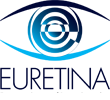Opus Genetics Inc., a private ocular gene therapy company based in Raleigh, North Carolina, has announced the acquisition of rights to two preclinical-stage AAV-based gene therapy product candidates for inherited retinal diseases (IRDs) from Iveric Bio (NASDAQ: ISEE). Opus have confirmed to develop the novel gene therapy candidates to address bestrophin-1 (BEST1)-related inherited retinal diseases and rhodopsin-mediated autosomal dominant retinitis pigmentosa (RHO-adRP), respectively.
According to the company, BEST1-related IRDs are estimated to affect approximately one in 69,000 people, or approximately 5,000 people, in the US. The BEST1 gene therapy is designed to deliver a functional copy of the BEST1 gene to retinal pigment epithelial cells to produce bestrophin-1 protein and normalize homeostasis between the photoreceptors and retinal pigment epithelial cells. BEST1 gene (VMD2, vitelliform macular dystrophy 2), is located on chromosome 11q12.3 with an autosomal dominant inheritance pattern and with variable penetrance. While patients have an estimated prevalence of between 1 to 9 per 100,000 in Europe, males are more affected than females (3:1). The disorder is a macular dystrophy characterized by loss of central visual acuity, metamorphopsia and a decrease in the Arden ratio (the final electro-oculogram [EOG] calculation) secondary to an egg yolk-like lesion located in the foveal or parafoveal region, generally characterized by atrophy of the retinal pigment epithelium (RPE). Although the diagnosis is often made during childhood. In their second program, RHO-adRP is one of the most common IRDs worldwide, estimated to affect 1 in 51,000 people, or more than 6,000 people, in the United States alone.
Commenting on their announcement, Ben Yerxa, PhD, Chief Executive Officer of Opus stated that, “the addition of these innovative BEST1 and RHO-adRP programs significantly increases the patient population that could benefit from Opus therapies and complements our existing pipeline of gene therapies for inherited retinal diseases. Opus is building an engine for addressing multiple IRDs, and deals like this one help us achieve our desire for sustainable growth of our infrastructure, operations, scientific expertise and ultimately our patient impact, with the goal of at least one IND per year.” As part of the deal, Opus will assume responsibility for the global research, development and commercialization of BEST1 and RHO-adRP programs. In exchange, Iveric received an upfront payment of $500,000 and high single-digit percentage ownership of Opus. Iveric is also eligible to receive development and regulatory milestone payments, sales milestone payments, and a low single-digit earnout on net sales of the products. Iveric retains certain rights with respect to the potential future commercialization of gene therapy products for BEST1 and/or RHO-adRP under certain circumstances. Finally, Bart P Leroy, MD, PhD, professor of Ophthalmology and member of the Center for Medical Genetics at Ghent University stated that, “over 28,000 people across the U.S., EU and UK, BEST1 and RHO-adRP represent a significant portion of all inherited retinal diseases and an urgent unmet need for effective treatment. IRDs are ideal targets for genetic therapies to stop the retinal degeneration and improve the lives of patients living with severe vision loss or blindness”.
